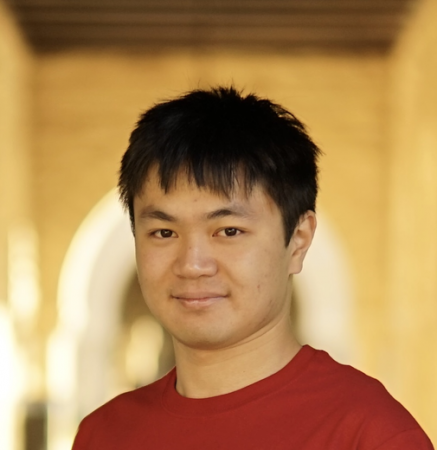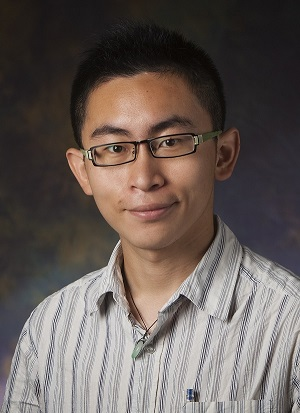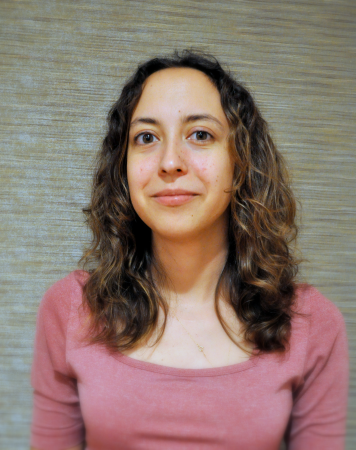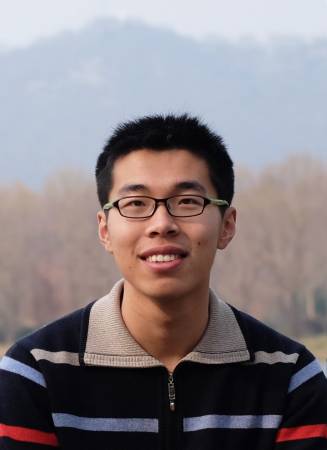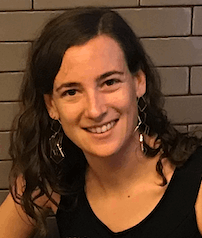Seminar
Deep Learning for Understanding Dynamic Visual Data
Abstract: Perceiving dynamic environments from visual inputs allows autonomous agents to understand and interact with the world and is a core topic in Artificial Intelligence. The success of deep learning motivates us to apply deep learning techniques to the perception of dynamic visual data. However, how to design and apply deep neural networks to effectively [...]
Optimizing for coordination with people
https://youtu.be/AQ-w5o2oGI8 Abstract: From autonomous cars to quadrotors to mobile manipulators, robots need to co-exist and even collaborate with humans. In this talk, we will explore how our formalism for decision making needs to change to account for this interaction, and dig our heels into the subtleties of modeling human behavior -- sometimes strategic, often irrational, [...]
Analyzing Grasp Contact via Thermal Imaging
Abstract: Grasping and manipulating objects is an important human skill. Because contact between hand and object is fundamental to grasping, measuring it can lead to important insights. However, observing contact through external sensors is challenging because of occlusion and the complexity of the human hand. I will discuss the use of thermal cameras to capture [...]
Fast Foveation for LIDARs, Projectors and Cameras
Abstract: Most cameras today capture images without considering scene content. In contrast, animal eyes have fast mechanical movements that control how the scene is imaged in detail by the fovea, where visual acuity is highest. This concentrates computational (i.e. neuronal) resources in places where they are most needed. The prevalence of foveation, and the wide [...]
Learning to See Through Occlusions and Obstructions
Virtual VASC: https://cmu.zoom.us/j/249106600 Abstract: Photography allows us to capture and share memorable moments of our lives. However, 2D images appear flat due to the lack of depth perception and may suffer from poor imaging conditions such as taking photos through reflecting or occluding elements. In this talk, I will present our recent efforts to [...]
Detectron2 in Object Detection Research
Virtual VASC: https://cmu.zoom.us/j/249106600 Abstract: Detectron2 is Facebook's library for object detection and segmentation. It has been used widely in FAIR's research and Facebook's products. This talk will introduce detectron2 with a focus on its use in object detection research, including the lessons we learned from building it, as well as the new research enabled [...]
Fairness in visual recognition
Virtual VASC Seminar: https://cmu.zoom.us/j/249106600 Abstract: Computer vision models trained on unparalleled amounts of data hold promise for making impartial, well-informed decisions in a variety of applications. However, more and more historical societal biases are making their way into these seemingly innocuous systems. Visual recognition models have exhibited bias by inappropriately correlating age, gender, sexual [...]
Bio-inspired depth sensing using computational optics
Virtual Seminar: https://cmu.zoom.us/j/249106600 Abstract: Jumping spiders rely on accurate depth perception for predation and navigation. They accomplish depth perception, despite their tiny brains, by using specialized optics. Each principal eye includes a multitiered retina that simultaneously receives multiple images with different amounts of defocus, and distance is decoded from these images with seemingly little [...]
Task-specific Vision DNN Models and Their Relation for Explaining Different Areas of the Visual Cortex
Virtual VASC Seminar: https://cmu.zoom.us/j/249106600 Abstract: Deep Neural Networks (DNNs) are state-of-the-art models for many vision tasks. We propose an approach to assess the relationship between visual tasks and their task-specific models. Our method uses Representation Similarity Analysis (RSA), which is commonly used to find a correlation between neuronal responses from brain data and models. [...]
